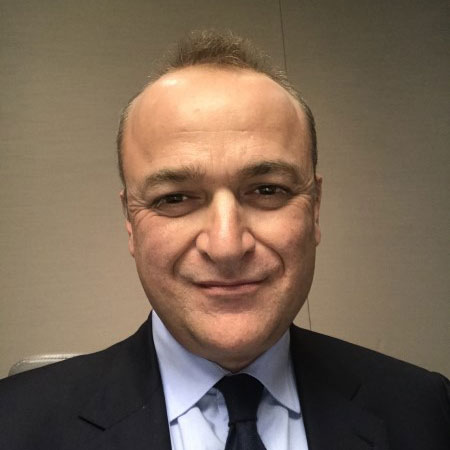Newly Launched Replay Has Big Plans For Writing and Delivering ‘Big DNA’
Viral Vector Has 30 Times Capacity Of AAV
Executive Summary
With a hub-and-spoke model, Replay has ambitious plans to solve multiple problems in genetic medicine and to disrupt the current AAV gene therapy model.
Replay, an ambitious new biotech start-up which aims to reprogram biology by writing and delivering ‘big DNA’, has been launched with $55m in seed financing.
Based in London and San Francisco, the company has assembled a portfolio of technologies that it says could help solve key challenges holding back genetic medicine, a strategy which it believes could help it reinvigorate the currently faltering revolution.
The company is led by co-founder and president Adrian Woolfson, former head of R&D at Sangamo and ex-global drug development leader at Pfizer and Bristol Myers Squibb, plus co-founder and CEO, Lachlan MacKinnon, who previously co-founded the venture capital firm Oxford Science Enterprises.
The seed funding was led by KKR and OMX Ventures, with additional participation from ARTIS Ventures and Lansdowne Partners, SALT, DeciBio Ventures and Axial.
Replay is built around four key technology platforms. The first of these is synHSV – a high payload capacity herpes simplex virus (HSV) vector able to deliver up to 30 times the payload of existing adeno-associated virus (AAV) gene therapies.
Then there is uCell – a universal, off-the-shelf, genomically rewritten, hypoimmunogenic immune pluripotent stem (ips) cell source for regenerative medicine and cell therapy. Next is DropSynth – a genome writing platform enabling rapid and low-cost synthesis of libraries of synthetic genes and big DNA. Completing the set is LASR, an evolutionary inference algorithm platform for rewriting proteins to optimize functionality.
While many existing companies are pursuing similar strategies in one of these specialist fields, Woolfson said Replay would bring together these solutions in one place.
“Replay was conceived around a realization that were there were a number of key challenges in genomic medicine that need to be solved,” he told Scrip. “If you can address these in a single place… you can create a great, powerful engine for generating the therapeutics in the future.”
Woolfson believes the model could allow Replay to “own the future of genomic medicine,” thanks also to what he described as a world-class team of entrepreneurs, academics and seasoned industry executives.
Among its many academic collaborators, the work of two further co-founders is key: Harvard University’s David Knipe is a world-renowned virologist and a pioneer of HSV research, while Ron Weiss is a pioneer of synthetic biology based at Massachusetts Institute of Technology.
Delivering Big DNA With HSV
The company’s HSV vector technology addresses one of the biggest downsides of the current standard adeno-associated virus (AAV)-based gene therapies: their limited payload capacity.
AAVs can only carry genomes of up to 5 kilobases (kb) in size, which has meant existing AAV gene therapy developers have to compromise. For instance, existing candidates in Duchenne muscular dystrophy use a shortened ‘micro-dystrophin’ as the original dystrophin gene is too large, an approach which could limit their efficacy and durability.
Replay has developed a high payload capacity vector based on the herpes simplex virus (HSV) which can deliver a genome 30-times larger. Woolfson believes the approach could potentially demonstrate greater safety and efficacy than AAV, and open up far more potential therapeutic targets.
HSV has been known to researchers for decades, but has been passed over in favour of the more easy-to-use AAV, and also because one of its gene products, known as infected cell protein 0 (ICP0), causes toxicity despite playing a key role in transgene expression.
That problem seems to have been solved by Joe Glorioso, professor of microbiology and molecular genetics at the University of Pittsburgh, with animal studies demonstrating what the company calls “very robust evidence of utility” and safety and sustained gene expression in different tissues in animal studies of the vector.
A 'Hub And Spoke' Approach
There is still much for Replay to prove in future human studies, but it is planning for success by setting up a hub-and-spoke model, which is a core part of its philosophy. This will involve Glorioso and other entrepreneur academics heading up spin-off companies using the synHSV platform.
Four separate gene therapy companies are already set up, respectively aiming to develop ‘big DNA’ therapies for diseases of skin, eye, brain and muscle.
One further spoke in the wheel is a protein design company that leverages Replay’s LASR and DropSynth technologies to develop next-generation enzymes.
Woolfson revealed that the gene therapy companies will target dystrophic epidermolysis bullosa (skin), Stargardt's disease and retinitis pigmentosa (eye), genetic Parkinson's disease (brain) and muscular dystrophy (muscle).
“There are roughly 10,000 monogenic diseases but 83% of the genes that cause monogenic diseases are too big to be accommodated by an AAV. So we believe HSV is a game changer and can disrupt AAV as the industry standard DNA delivery vehicle,” he said. “That’s because of the payload capacity, the safety, but also, we believe, the ability to maintain gene expression over a much longer timeframe.”
One other company is already actively pursuing a HSV platform, Krystal Biotech. Last month it submitted its topical gene therapy candidate Vyjuvek (beremagene geperpavec) as a treatment for people with dystrophic epidermolysis bullosa. Woolfson said Krystal’s lead in the field would help open up a pathway and regulatory experience with the science, which would benefit Replay.
Replay’s platform will also allow it to target diseases where many genes are involve (polygenic conditions) by loading the vector with multiple genes or putting in multiple repressors or activators to target gene expression.
MacKinnon said the hub-and-spoke model would allow Replay to be an “enduring company” which takes products to market and but also remains at the cutting edge of technology development.
“We want to create a company that rolls its winners into more winners. So, the goal for us was to separate technology development within Replay in a disease-agnostic way. That will allow us to go after the big problems within this focused entity. Then when we see a product we can develop with our platforms, we create a company that looks like a traditional biotech in a focused area.”
The company already has around 40 employees building up its core platforms, with the spin-out companies working on a much more virtual basis. The founders hope their sizeable seed funding will enable it to hit key catalysts across each technology and each product, with the goal of teeing up the next financing round and progress towards first-in-human trials.

